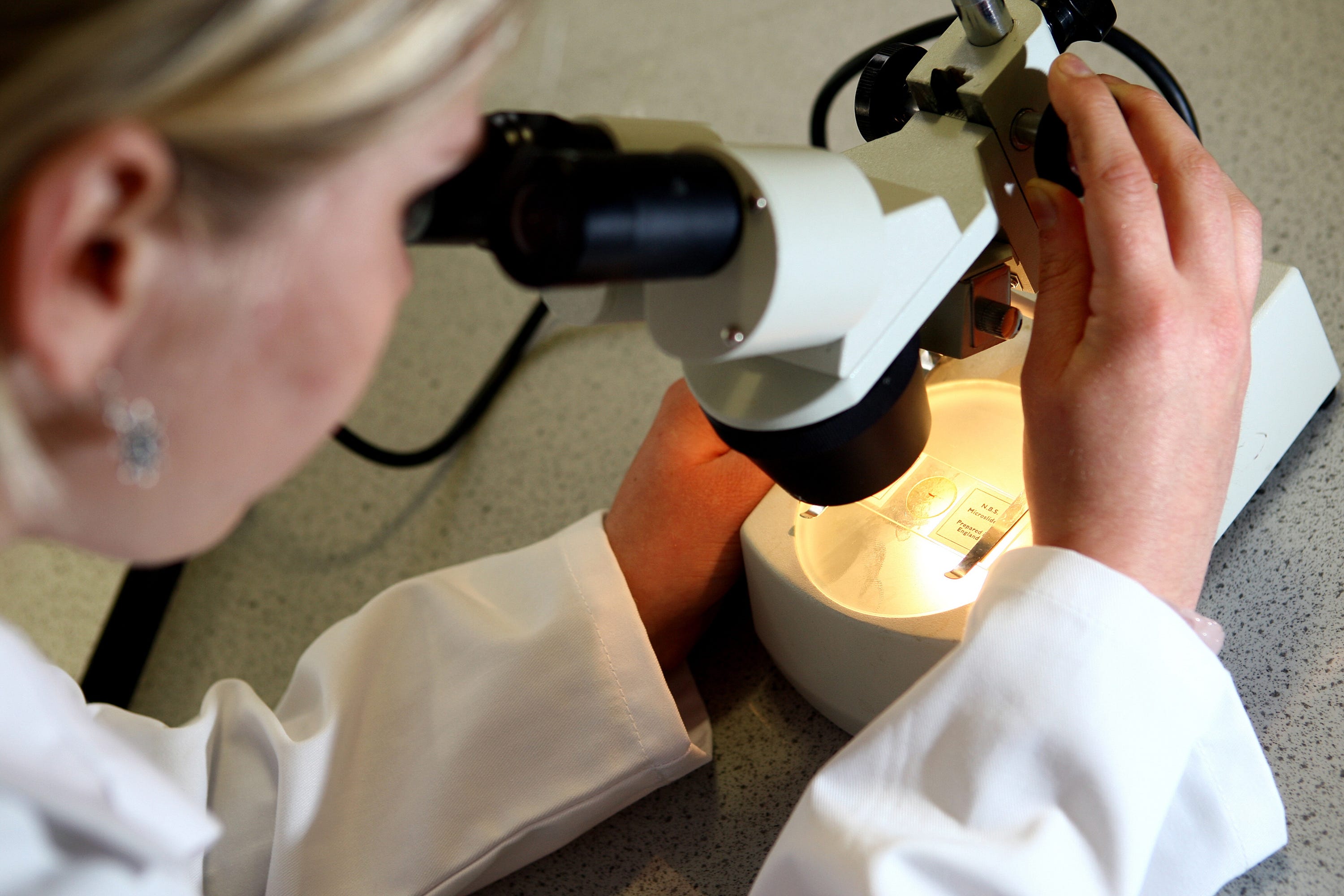Ministers working to counter risks from China to UK health data, letter suggests
The information is contained in leaked correspondence from Cabinet Office minister John Glen.

Your support helps us to tell the story
From reproductive rights to climate change to Big Tech, The Independent is on the ground when the story is developing. Whether it's investigating the financials of Elon Musk's pro-Trump PAC or producing our latest documentary, 'The A Word', which shines a light on the American women fighting for reproductive rights, we know how important it is to parse out the facts from the messaging.
At such a critical moment in US history, we need reporters on the ground. Your donation allows us to keep sending journalists to speak to both sides of the story.
The Independent is trusted by Americans across the entire political spectrum. And unlike many other quality news outlets, we choose not to lock Americans out of our reporting and analysis with paywalls. We believe quality journalism should be available to everyone, paid for by those who can afford it.
Your support makes all the difference.Ministers are working to counter the risks of Chinese interference in UK health data, a leaked letter suggests.
Correspondence from Cabinet Office minister John Glen reveals the UK is conducting “significant work related to national security” after concerns were raised about Chinese genomics company BGI and a spin-off firm.
Accusations the company had attempted multiple times to hack into the Genomics England database were raised in Parliament in March 2023, but were hastily withdrawn.
Genomics is the study of the human genome, and could be used to achieve quicker diagnosis and better treatments for a host of diseases.
MPs have previously raised concerns about genomics giant BGI, as they believe it could be asked to hand over data to the Chinese state, although the company has strongly denied this.
During the pandemic, it won a £11 million contract with the NHS.
Conservative MP Henry Smith wrote to the Deputy Prime Minister Oliver Dowden in February expressing concerns about BGI.
In a response letter seen by the PA news agency, Mr Glen has said: “I understand your concerns regarding this matter and would like to reassure you that significant work related to national security is being conducted to minimise the risks that you have highlighted in your letter.”
The minister also said organisations like Genomics England “actively consider national security in decision making about partnerships with companies overseas”.
Last year, then-science minister George Freeman claimed in a Westminster Hall debate that the NHS datastore was “suffering several hack attacks from BGI each week” during 2014.
But Mr Freeman soon issued a correction to the claim on Parliament’s official record Hansard, writing: “There is no evidence of attempted hacking of Genomics England in 2014 from BGI.”
Conservative former minister Sir Iain Duncan Smith has warned in recent weeks about the risks of UK-based private companies working with Chinese firms, some of whom are public service contractors.
Writing in the Telegraph, Sir Iain suggested UK-based private health companies working with BGI could “seriously undermine attempts to protect UK citizens”.
BGI Group has never been, and will never be, involved in 'hack attacks' against anyone. BGI Group’s labs meet stringent standards in information security
BGI said the allegations against it were “not based on facts or evidence”, adding it was “disappointed that misinformation continues to be circulated”.
A spokesman for the Shenzhen-based company pointed to the correction by Mr Freeman, and added: “BGI Group has never been, and will never be, involved in ‘hack attacks’ against anyone.
“BGI Group’s labs meet stringent standards in information security.
“Our data standards globally include the British Standard Institute’s BS10012, considered the gold standard in personal information protection, compliance with the EU’s General Data Protection Regulation (GDPR), and the ISO27001 standard on information security.
“We will continue to support the UK in improving the health of the people and continue to advocate for open and inclusive global scientific collaboration with the aim of fighting diseases more effectively.”